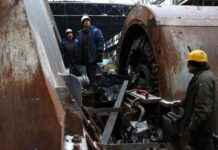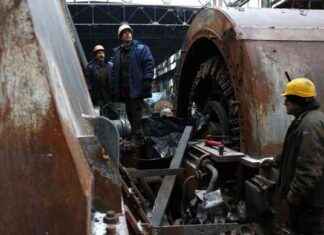On September 11, 2012, in the midst of the civil war in Libya, around twenty armed men entered the diplomatic complex in Benghazi (east) before setting fire to the villa where the American ambassador Chris Stevens and an employee, Sean Smith, were. Both die of asphyxiation.
The assailants then fire mortars at a building used by the CIA intelligence agency in another district of Benghazi, killing two former members of the Navy Seals, an elite force.
The assault, carried out eleven years to the day after the September 11 attacks, caused a shock in the United States: no American ambassador had been killed since 1979. Several branches of the American government were blamed for faults and negligence, in particular the State Department then headed by Hillary Clinton.
Two years after the attack and amid violent clashes in Tripoli, the United States, like many other countries, closed its embassy in Libya in 2014 and has not reopened it since.
This diplomatic vacuum and a disengagement from the Libyan file under the administration of Donald Trump (2017-2021) left free rein to other actors, in particular Russia, Egypt and the Emirates, supporters of the camp of the Is, and Turkey, an ally of the Tripoli government.
– “Influence” –
But that did not prevent Washington from exerting, “repeatedly after 2012, a crucial influence on the Libyan file”, deciphers for AFP the researcher and analyst Jalel Harchaoui, specialist in Libya.
“There were rather positive moments like the agreement (on a Libyan unity government) concluded under the aegis of the UN in Skhirat (Morocco), in 2015, on which the Americans had worked a lot,” says he.
But there were also “darker moments” when Donald Trump backed eastern Libyan strongman Marshal Khalifa Haftar as he launched an offensive to conquer Tripoli in 2019, the expert adds.
Two Libyans captured by US forces in Libya and tried in the United States, Moustafa al-Imam and Abu Khattala, were sentenced to 19 and 22 years respectively in prison in connection with the Benghazi attack.
The attack took place almost a year after the fall of the regime of former dictator Muammar Gaddafi, carried away by a revolt supported by a controversial international intervention under the aegis of NATO, plunging the country into political and security chaos. which endures, with rival powers in the east and west.
While many chancelleries returned to Tripoli last year thanks to a significant improvement in the situation on the ground, the American embassy is still working from Tunis and Ambassador Richard Norland only makes rare visits. in the Libyan capital.
– Oil –
Two governments have been vying for power since March in Libya: one based in Tripoli and led by Abdelhamid Dbeibah since 2021 and another led by Fathi Bachagha and supported by the camp of Marshal Khalifa Haftar.
Fighting opposed rival militias in late August in Tripoli, leaving 32 dead and 159 injured, according to a report from the Ministry of Health.
A European diplomatic source in Tripoli says keeping Libyan oil production free from political turmoil appears to be the top US concern right now, though Norland is also constantly calling for elections in the country. , the postponement of the elections scheduled for December 2021 having aggravated the crisis between rival camps.
Mr. Norland had warned rival protagonists in Libya in June against using oil “as a weapon” in their political disputes.
Oil production in Libya reached 1.2 million barrels per day at the end of July, its daily average before an oil blockade imposed between mid-April and mid-July by groups close to the eastern camp.
“It is incumbent on all external and internal actors to move towards presidential and parliamentary elections as soon as possible,” Mr. Norland said on Wednesday, quoted by the American embassy.








